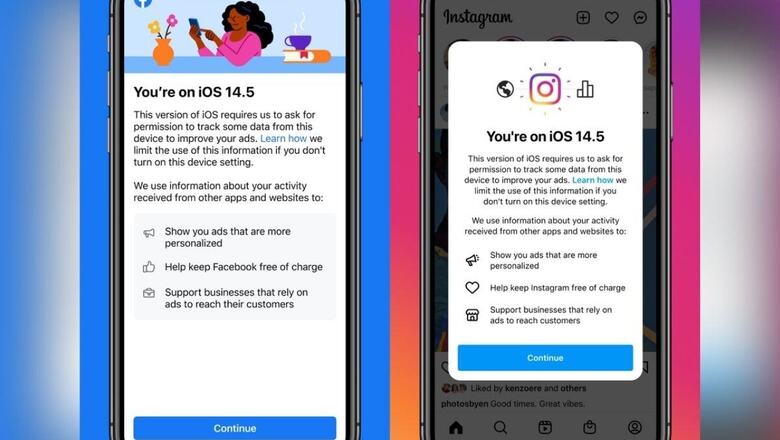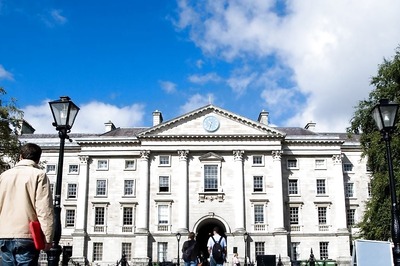
views
Remember the good old days, when Facebook was all about creating the fanciest virtual farmland or being the baddest e-mafia you could be? Yeah, those ships have sailed long ago. Today, Facebook is probably a bit too much about your data, and that’s no longer a surprise to anyone around. In such circumstances, when Apple announced App Tracking Transparency to be a new feature coming to iOS that would let you simply opt out of being stalked all over the internet by Facebook and Google, the entire world of privacy advocates and users largely rejoiced. Facebook, however, had clear problems with it. After newspaper ads and online appeals posing as the messiah of independent entrepreneurs, Facebook now seems to be taking up a more direct approach – appealing straight to the consumer.
According to a post on Twitter by user Ashkan Soltani, Facebook and Instagram are right now exploring ways to very subtly and passively threaten users into not preventing the company from tracking them. Soltani shared what appears to be draft notifications on both the Facebook and Instagram mobile apps, which start with a bright, big prompt that states which version of iOS is a user on. Subsequently, Facebook seemingly goes on to say, “This version of iOS requires us to ask for permission to track some data from this device to improve your ads. Learn how we limit the use of this information if you don’t turn on this device setting.” The notification is also apparently driven to Instagram in the same fashion as Facebook.
Here’s where things get even better – explaining how they use the data that is received from users, Facebook states that letting them track you would help show you personalised advertisements, support ad-supported businesses, and “help keep Facebook/Instagram free of charge”. The move considerably tracks back on Facebook’s blanket promise that the service “is free and always will be”, which it showed on its landing/login page since inception, right up to some time in 2019 – which is when it was hit by massive data harvesting scandals. As the world woke up to Cambridge Analytica, Facebook’s billionaire founder, Mark Zuckerberg, started becoming an increasingly regular face at the United States Congress.
As Zuckerberg deflected questions and scored a meme moment with “Senator, we sell ads”, one of the most critical conversations that were raised was how Facebook could simply assume that the data users were sharing with each other was also theirs to commoditise, and since they were doing so, could it really be called free. The European General Data Protection Regulation laws also came into effect, and the company faced a few billions of dollars in fines, mostly within the European Union, for issues ranging beyond data misuse – such as anticompetitive acquisitions. At its heart, however, the data harvesting issue kept on ravaging.
Even as Facebook has seemingly built recourses for users to see what all data does Facebook collect and share about them, the company right now stands paranoid about the potential of its targeted ads business. It has already spoken out multiple times against Apple, claiming that what Apple is doing is going to harm millions of users relying on targeted advertisements at the moment. However, there is no denying that what it is also essentially saying that Apple’s App Tracking Transparency move is going to hurt Facebook itself and stop it from establishing itself as the kingpin of centralised consumer tracking across the internet. The issue, therefore, is largely similar to Google and its Federated Learning of Cohorts (FLoC) – why should one tech giant be allowed to be the messiah of the modern digital ads industry?
While online reports aren’t clear on whether they have as yet received these notifications, it remains to be seen what further steps does Facebook take in order to circumvent Apple’s app tracking notifications feature. Quantitative data is also non-existent on whether Facebook’s claims about small businesses being ravaged as a result of Apple’s privacy-forward move hold any truth at all. For now, though, users are advised to ensure that they disable app tracking across all quarters, making sure that they take back what’s left of their digital privacy.
Read all the Latest News, Breaking News and Coronavirus News here. Follow us on Facebook, Twitter and Telegram.

















Comments
0 comment